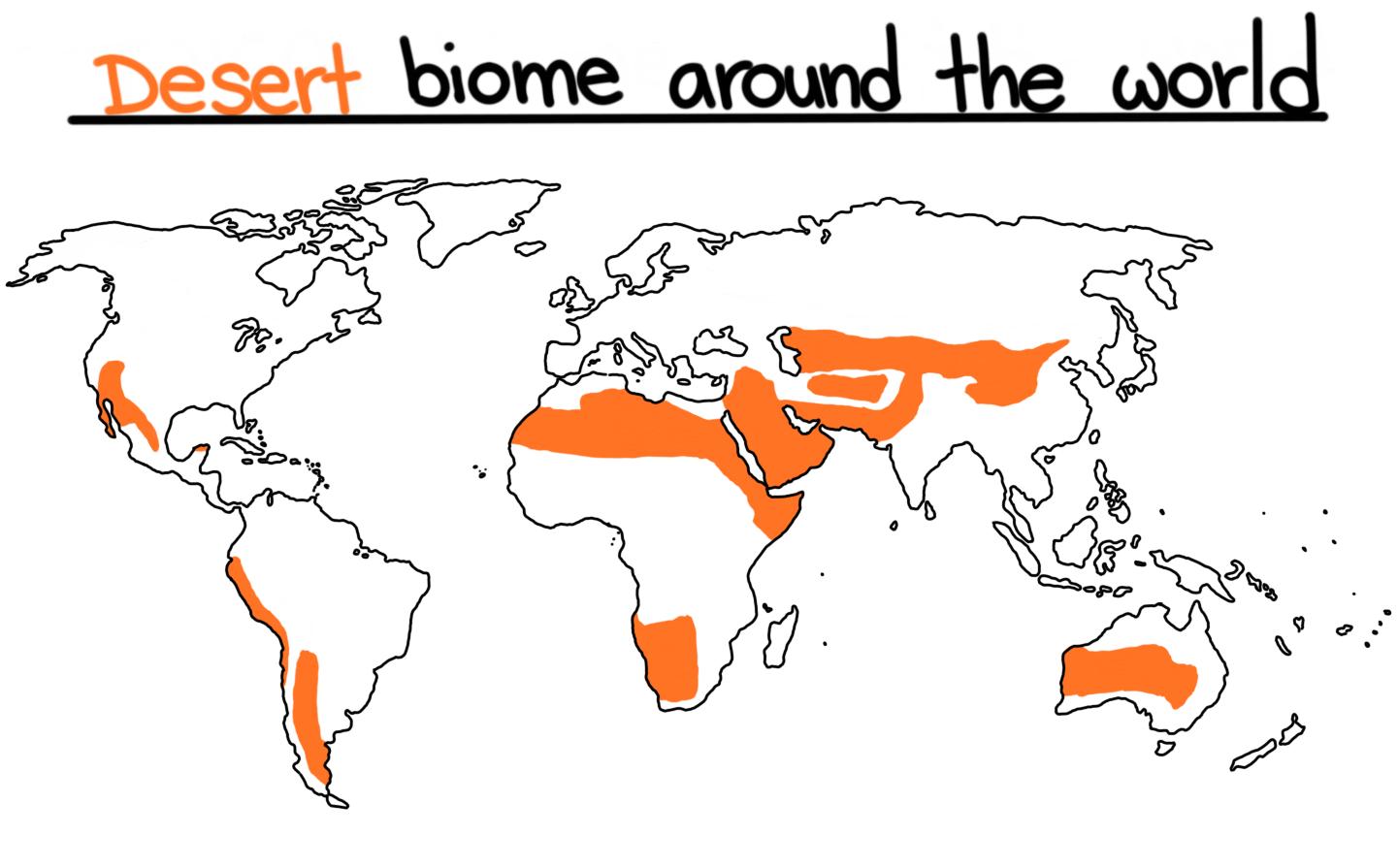
World Map Of Desert Biome Island Maps
1. Antarctic - 5.5 million square miles The continent of Antarctica is the world's driest place. The Antarctic is classified as a polar desert. Measuring 5.5 million square miles (14.2 million sq. km), it is the largest desert in the world. Unlike most global deserts, the Antarctic covers the entire continent.
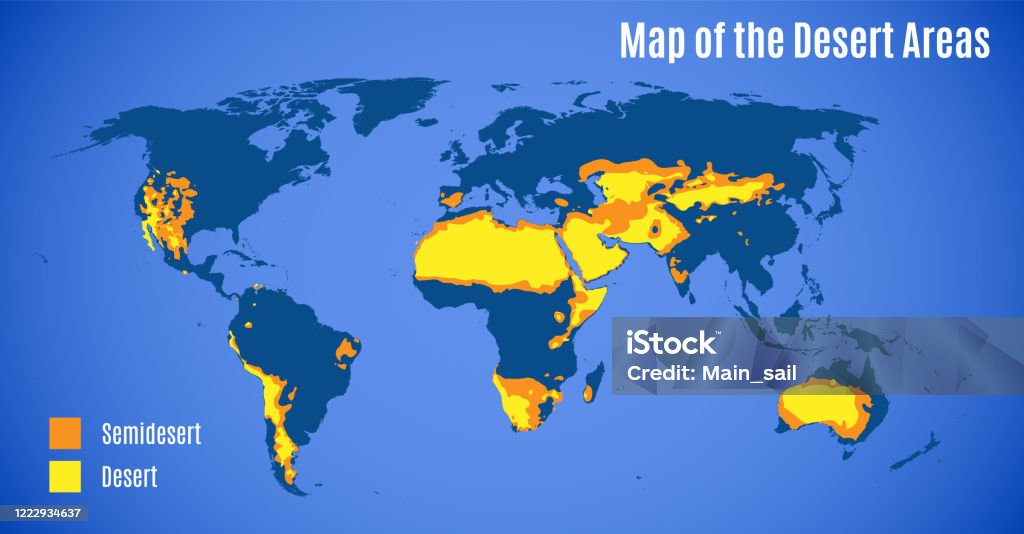
Schematic Map Of The World Sandy Deserts Area Stock Illustration
About World Desert Map Explore the Deserts in World Map to locate all the major deserts of the Earth including hot, cold and costal deserts. World Maps in our Store - Order High Resolution Vector and Raster Files

The Largest Deserts In The World WorldAtlas
Highest points The highest point on Earth, measured from sea level, is the summit of Mount Everest. The mountain, also known as Chomolungma, peaks at 8,848 m (29,029 ft; its snow-ice cover included). The Earth's highest mountain is located in the Himalayan Range on the border of Nepal and China.

World Map Of Deserts Labeled United States Map
A map showing the generalized location of Earth's ten largest deserts and a table of over 20 major deserts. World desert map: This map shows the generalized location of Earth's ten largest deserts on the basis of surface area.
'Sand deserts around the world' MapsWithoutNZ
Polar desert Tundra United Nations Convention to Combat Desertification References ^ a b c d e f "Top ten largest (non-polar) deserts". Retrieved 2021-05-14. ^ "Arabian Desert". Retrieved 2007-12-28. ^ Bass, Karen (2009-02-01). "Nature's Great Events:The Okavango Delta, Kalahari Desert" (PDF). press.uchicago.edu. University of Chicago Press.

Deserts of the World / Deserts According to Their Respective Continents
The deserts in the world are divided into three types. Subtropical deserts - they are the hottest deserts with dry terrain and rapid evaporation rate. Cool coastal deserts - the average.

The deserts of the world (Diagram Remini, 2020) Download Scientific
Sahara, largest desert in the world. Filling nearly all of northern Africa, it measures approximately 3,000 miles (4,800 km) from east to west and between 800 to 1,200 miles from north to south and has a total area of some 3,320,000 square miles (8,600,000 square km).

Earth's Deserts Definition, Distribution & Location Video & Lesson
Deserts occupy 1/5 of the world's surface. Deserts also get a lot of wind. Furthermore, the lack of vegetation promotes wind movement and dust transport. Desert landscapes may have sand dunes, canyons, rock formations, or bare peaks. It is not rare that water and wind erosion wear soft rock to create buttes and mesas found in deserts.
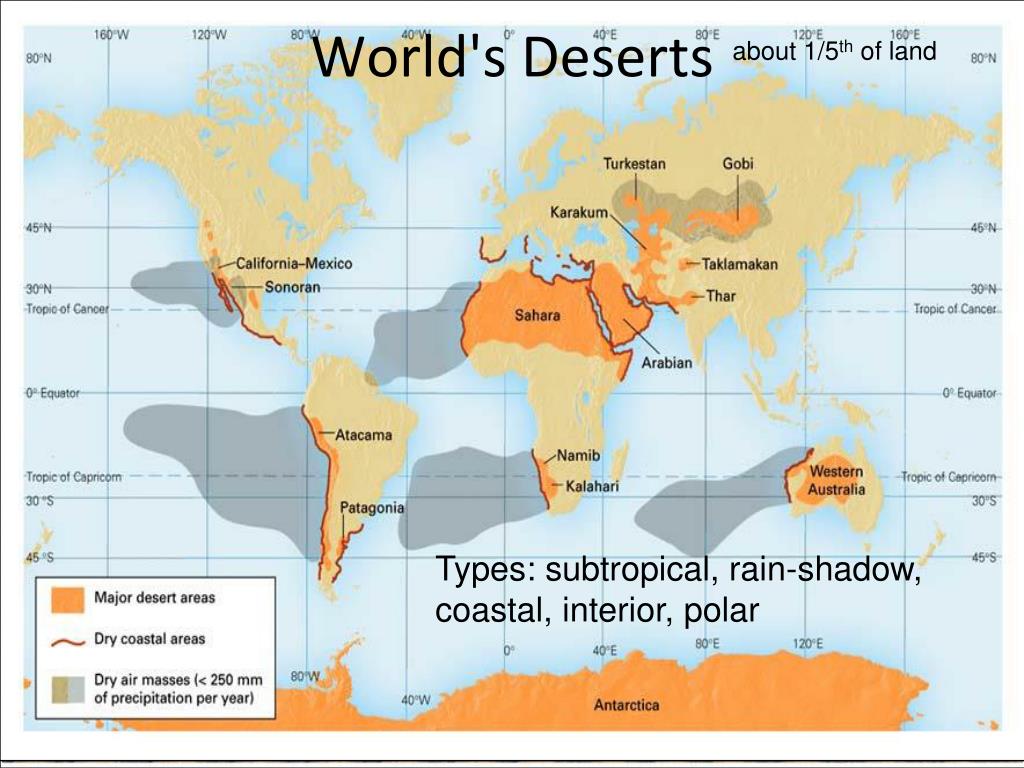
PPT بیابان PowerPoint Presentation, free download ID4915997
75 Deserts cover about one-third of the Earth's land surface area. But the deserts of the world are much more than just the sandy, lifeless dunes of storybooks. The deserts found on Earth are extremely diverse, each unique in their own way.

Important deserts of the world PCSSTUDIES Geography
Where are Deserts Located in the World? March 1, 2018 Geography, K-12 Resources, World 4.2/5 - (45 votes) 4.2/5 - (45 votes) Map of the World depicting locations of deserts The barren areas that receive less than 250 mm of annual precipitation and have extreme climatic conditions, either hot or cold, are categorized as deserts.
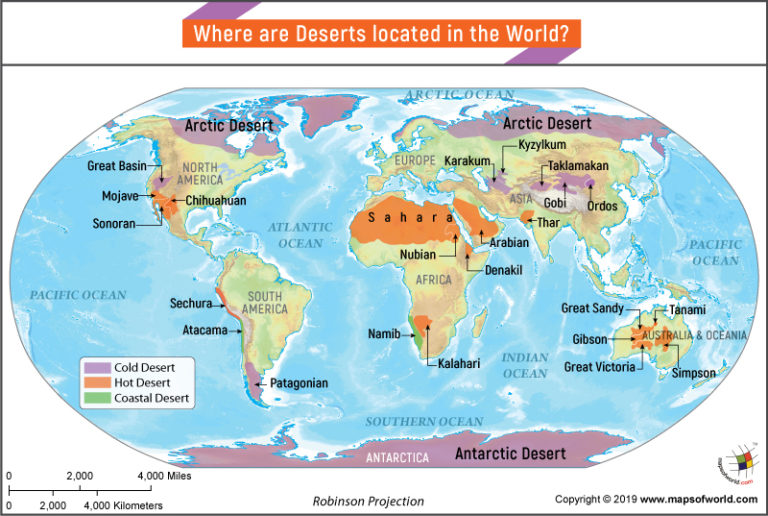
Where are Deserts Located in the World? Answers
Description : The world desert map shows the major deserts around the world. Covering a combined total of about one-fifth to one-third of the land surface of the Earth, deserts are landscapes or regions that receive little precipitation, with a relatively high level of evaporation, creating a deficit.
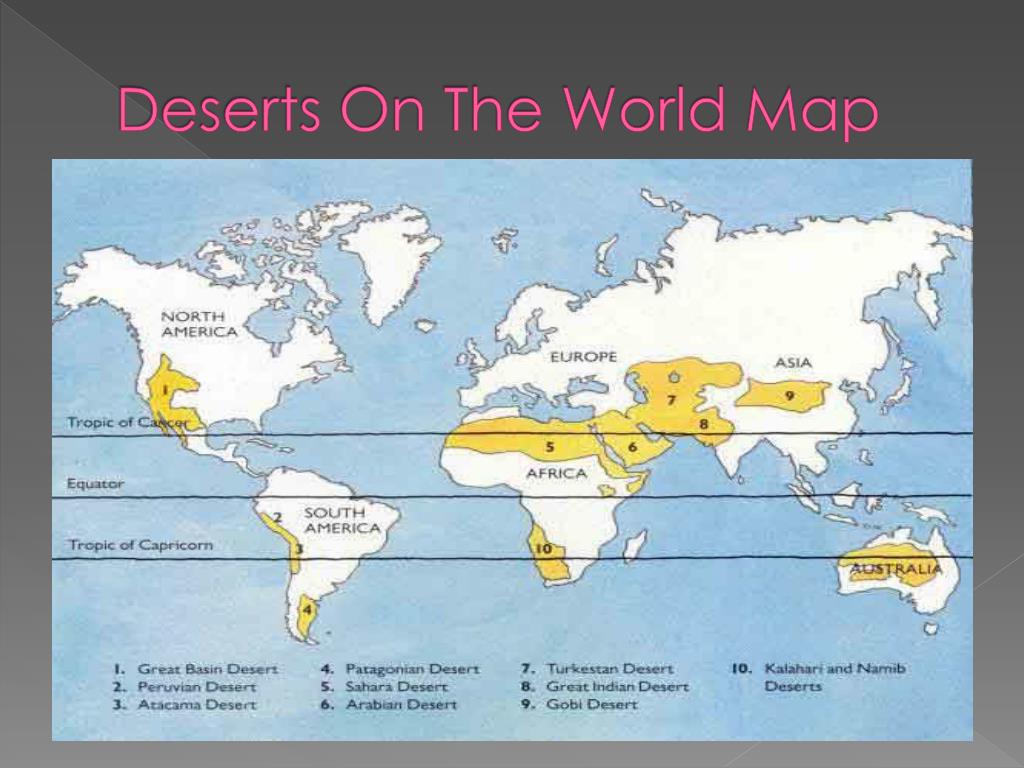
Map Of The World Showing Deserts Map of world
Sahara Desert Daniel Viñé Garcia / Getty Images If someone says desert, you likely think of miles of sweltering sun on rolling sand dunes, winds gusting across them. Welcome to the Sahara Desert, the world's largest hot desert - and the prototype for all other "deserts."
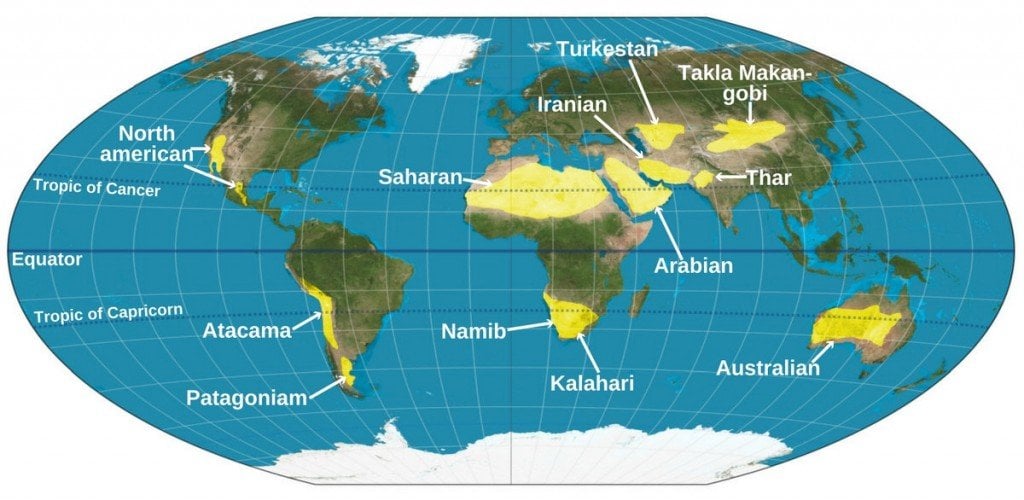
Why Are Tropical Regions Hotter Than Equatorial Regions? » Science ABC
What is a Desert? A desert is a location or a landscape that receives less than 250 mm of precipitation annually (about ten inches). Deserts make up about one-third of the planet's land area. Based on their dryness, deserts can be classified into one of five categories: subtropical deserts, coastal deserts, rain shadow deserts interior deserts and

Deserts Map, Natural Habitat Maps National Geographic
The world's hot deserts are located between 15° and 30° north or south of the equator, where the air is subsiding or sinking air ( find out why deserts are found along the tropics here ). Air that rises due to the intense heat at the equator divides to flow north and south. Deserts are often found towards the west of continents.
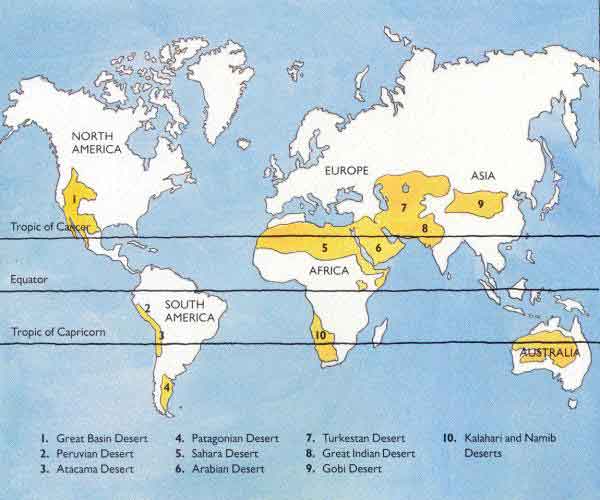
Desert Biome Facts 14 Facts about Animals and Plants
Hot and Cold Deserts The largest hot desert in the world is the Sahara, which is 9 million square kilometers (3.5 million square miles). It isn't the hottest place on Earth, though. That distinction belongs to Death Valley, in California's Mojave Desert. The highest temperature on Earth was recorded there: 56.7 C (134.1 F).
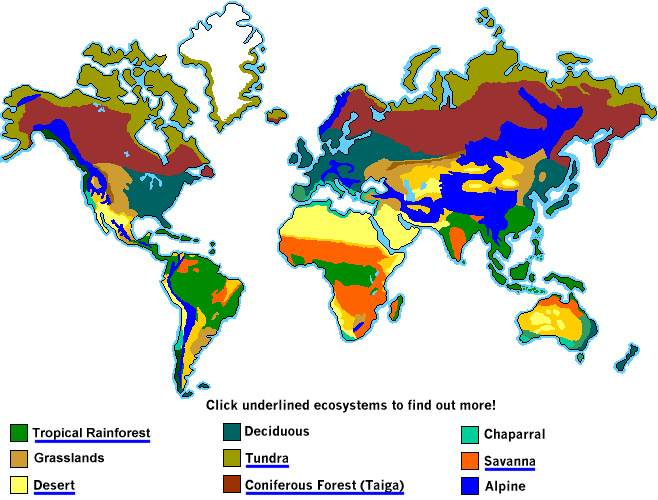
Where are deserts located? Geography
It's also home to a long list of unusual and iconic wildlife, including Beluga whales, arctic hares, arctic foxes, snowy owls, Arctic wooly bear moths, narwhals, orca whales, bald eagles, caribou, moose, seals, wolverines, and polar bears. 1. Antarctic Desert. Antarctica is the largest desert in the world.